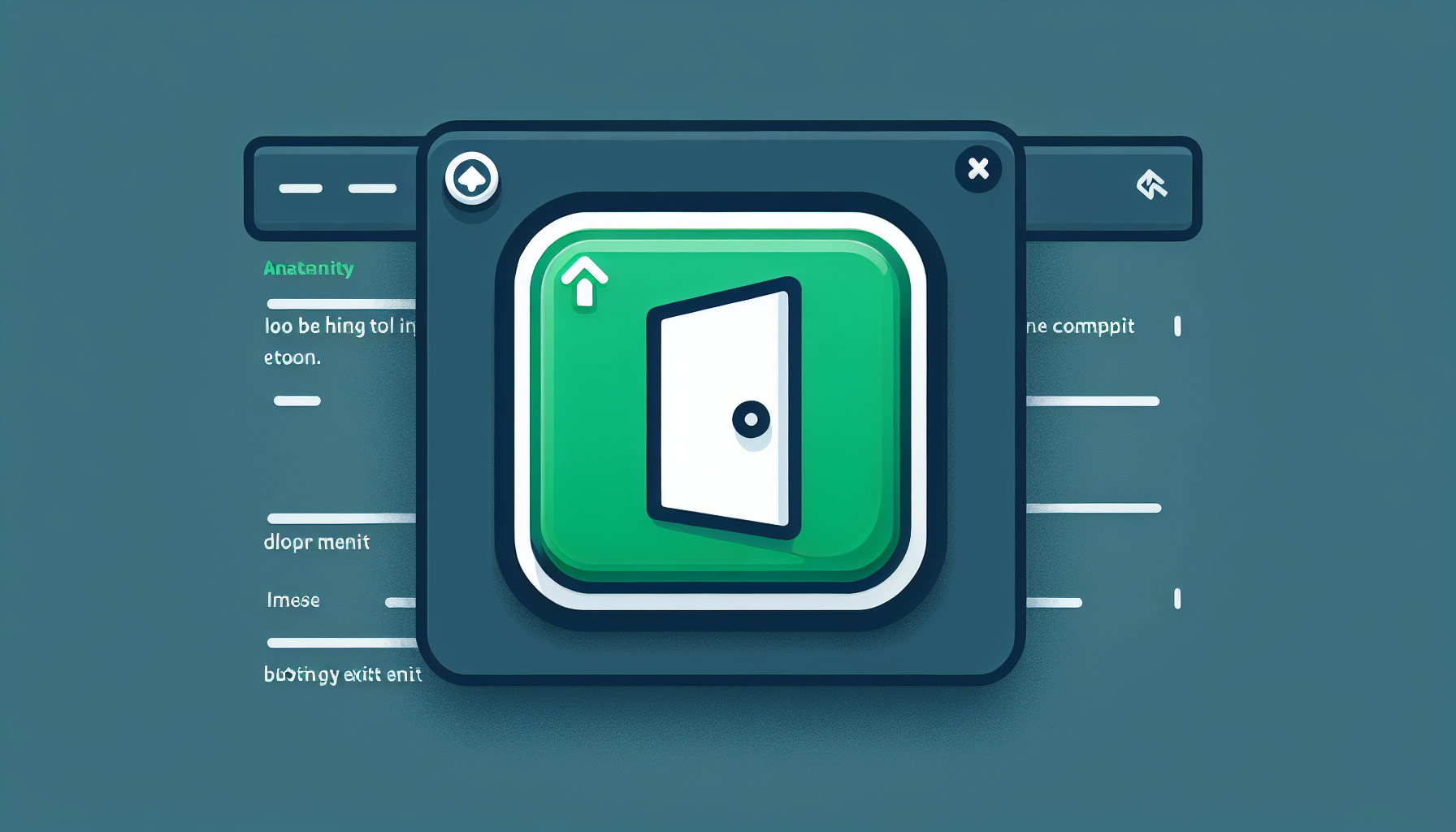“`html
Understanding and Utilizing ‘Exit’ in Excel VBA
Excel VBA (Visual Basic for Applications) offers a variety of commands to handle program flow efficiently. One of these essential commands is Exit. Whether you’re dealing with loops, functions, or subroutines, knowing how to use the Exit command can greatly streamline your VBA code. This blog post will provide a comprehensive overview of the Exit command, its usage, and practical examples.
What is the ‘Exit’ Command in Excel VBA?
The Exit command in Excel VBA is used to prematurely terminate a loop, function, or subroutine. It is particularly useful when a specific condition is met, and continuing the execution is either unnecessary or could lead to errors.
How to Use the ‘Exit’ Command
There are three primary forms of the Exit command in VBA:
- Exit For: Exits a For loop.
- Exit Do: Exits a Do loop.
- Exit Sub/Function: Exits a Subroutine or Function.
Using ‘Exit For’
The Exit For statement is used to terminate the execution of a For loop before it has completed all its iterations. Here is an example:
Sub ExitForExample()
Dim i As Integer
For i = 1 To 10
If i = 5 Then
Exit For
End If
Debug.Print i
Next i
End Sub
In this example, the loop will terminate when i equals 5, and only the numbers 1 to 4 will be printed to the Immediate Window.
Using ‘Exit Do’
The Exit Do statement is used to exit a Do loop. Here is an example:
Sub ExitDoExample()
Dim i As Integer
i = 1
Do While i <= 10
If i = 5 Then
Exit Do
End If
Debug.Print i
i = i + 1
Loop
End Sub
This example demonstrates how the Do loop will terminate when i equals 5, printing the numbers 1 to 4.
Using 'Exit Sub' and 'Exit Function'
The Exit Sub and Exit Function statements are used to exit a Subroutine or Function, respectively. Here is an example:
Sub ExitSubExample()
Dim condition As Boolean
condition = True
If condition Then
Exit Sub
End If
Debug.Print "This will not be printed."
End Sub
Function ExitFunctionExample() As String
ExitFunctionExample = "Initial Value"
Dim condition As Boolean
condition = True
If condition Then
Exit Function
End If
ExitFunctionExample = "Changed Value"
End Function
In these examples, Exit Sub and Exit Function terminate the execution before reaching the Debug.Print or changing the function's result.
Practical Examples and Best Practices
Using the Exit command efficiently can save time and prevent errors. For more advanced techniques and best practices, you can explore resources on Microsoft's official documentation or our VBA tutorials page.
In conclusion, the Exit command in Excel VBA is a powerful tool for controlling the flow of your code. By understanding and using it correctly, you can write more efficient and error-free VBA programs.
```

